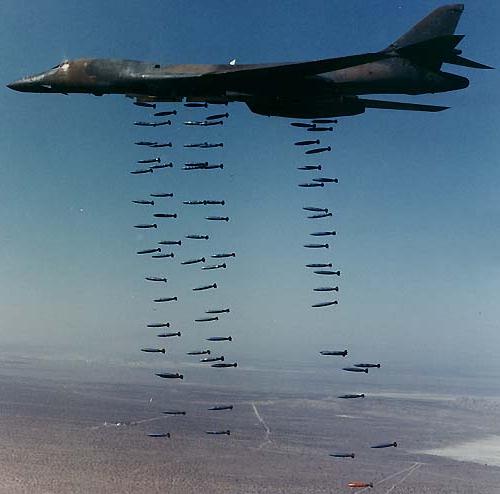
In class, we started talking about the strategies used in world war II. Bombing, and in many cases of civilians, was one of the most prominent and deadly strategies used by both the axis and allies. We had to ask ourselves the question though; Is the bombing of civilians ever an acceptable action during war? Everyone has their own opinion, but I noticed an interesting parallel.
On April 24th, one of the most deadly acts of suicide bombing occurred in Iraq. A total of 60 people died. The bombers were two women who walked into a crowd on Friday, the Muslim holy day, with grenades and other explosives. This type of civilian bombing may be a little different, but I think the same questions can be asked. Is the best way to express a feeling to a group of power attacking civilians? The civilians are targeted because they are relatively easy to do so. Extremists such as these women do this because they may believe that they can use fear to get the results that they want. I then thought, Is this true of every type of bombing, military or otherwise? When a military attacks civilians with bombs, the immediate effect of that is fear. With a population of fearful people, the general consensus might be to give into the other countries demands. So then is military bombing of civilians also considered terrorism?
Another question I thought of was about defense. It is impossible to check every person when they go into high population areas, and what could two women possibly do right? We have seen this as a trend; women and children have often taken their own lives in this fashion. However, the majority of women and children are not suicide bombers. So how do we defend ourselves? What draws the line between total governmental control over public behavior and safety? The bombing of civilians may or may not be an appropriate action, but it is for sure that it is becoming harder to combat.
1 comment:
You ask a lot of great questions in this post, Danny. I particularly like your thoughts on how fear is a weapon, of sorts. Keep this in mind for the simulation today -- how will countries possibly use fear to further their political agendas?
Post a Comment